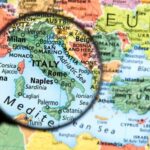Italy, known for its rich history, beautiful architecture, and delectable cuisine, is a popular destination for travelers from around the world. However, the global pandemic has led to unprecedented challenges for the travel industry, including the implementation of various travel restrictions. In this article, we will delve into the current situation in Italy and explore the travel restrictions that are currently in place.
As travelers eagerly anticipate their next getaway, many are left wondering: does Italy have any travel restrictions? With COVID-19 continuing to impact international travel, it is crucial for anyone considering a trip to Italy to be aware of the latest regulations and requirements.
Throughout this article, we will provide an overview of Italy’s current travel restrictions and entry requirements for travelers. We will also discuss quarantine rules and regulations, any travel advisories or warnings that may be in place, as well as how these measures have impacted Italy’s vital tourism industry.
Additionally, we will offer tips and advice for travelers who are planning a trip to Italy despite the existing travel restrictions. Stay tuned as we unravel the complexities of traveling to Italy during these extraordinary times.
Overview of Italy’s Travel Restrictions
Italy has implemented various travel restrictions in response to the COVID-19 pandemic. These restrictions are aimed at controlling the spread of the virus and protecting the health and safety of both residents and visitors. It is important for travelers to be aware of these restrictions before planning a trip to Italy in order to avoid any inconvenience or disappointment.
Restrictions on Non-Essential Travel
As of now, Italy has put in place restrictions on non-essential travel from certain countries that are considered high-risk due to the prevalence of COVID-19. Travelers from these countries may face limitations on entering Italy, and those who are allowed entry may be subject to additional requirements such as testing and quarantine.
Mask Mandates and Social Distancing
In addition to restrictions on international travel, Italy also has mandates in place regarding mask-wearing and social distancing measures within the country. Travelers should be prepared to comply with these requirements while visiting public spaces, transportation, and indoor establishments.
Vaccination Requirements
Italy has also implemented vaccination requirements for travelers entering the country. Depending on the traveler’s vaccination status, they may be required to provide proof of vaccination or undergo testing upon arrival in Italy.
These current travel restrictions are subject to change based on the evolving situation with COVID-19. It is important for travelers to stay informed about any updates or changes to the restrictions before embarking on their trip to Italy.
Entry Requirements for Travelers
Italy is a popular tourist destination known for its rich history, stunning architecture, and delicious cuisine. However, the country has implemented travel restrictions in response to the COVID-19 pandemic. So, does Italy have any travel restrictions? As of now, Italy does have travel restrictions in place to control the spread of the virus and protect public health.
To enter Italy, travelers from most countries are required to present a negative COVID-19 test result taken within 72 hours before their arrival. Additionally, travelers may need to fill out a self-declaration form and undergo health screening upon arrival. It’s important for travelers to stay updated on these entry requirements as they can change based on the current situation.
In addition to these entry requirements, there may be specific regulations or quarantine measures depending on the traveler’s country of origin and the current epidemiological situation. Travelers should check the official website of the Italian Ministry of Foreign Affairs or consult with their embassy or consulate for the latest information on entry requirements and travel restrictions.
| Entry Requirements | Travelers Need |
|---|---|
| Negative COVID-19 test result | Within 72 hours before arrival |
| Self-declaration form | Required |
| Health screening upon arrival | Mandatory |
Quarantine Rules and Regulations
Italy currently has specific quarantine rules and regulations in place for travelers entering the country. It’s important for anyone planning a trip to Italy to understand these requirements to ensure a smooth and hassle-free experience upon arrival.
Quarantine Rules and Regulations for Travelers Entering Italy:
1. Duration of Quarantine: Upon arrival in Italy, travelers from certain countries may be required to undergo a mandatory quarantine period. The duration of the quarantine period may vary depending on the traveler’s country of origin and the current COVID-19 situation in that country.
2. Quarantine Location: Travelers entering Italy may be required to quarantine at a designated location, such as a hotel or other approved accommodation. This ensures that travelers can effectively isolate themselves from the local population and minimize the risk of spreading COVID-19.
3. Quarantine Monitoring: During the quarantine period, travelers may be subject to monitoring by local health authorities. This could include regular check-ins, temperature checks, and other measures to ensure compliance with quarantine requirements.
It is important for travelers considering a trip to Italy to stay updated on the latest quarantine rules and regulations before making any travel plans. Due to the evolving nature of the COVID-19 pandemic, these requirements are subject to change, and it is essential to be well-informed before embarking on any international travel.
Travel Advisories and Warnings
Italy is a popular travel destination known for its rich history, stunning landmarks, and delicious cuisine. However, it is important for travelers to stay informed about any travel advisories or warnings that may be in place before planning a trip to Italy. As of the present time, Italy does have certain travel restrictions and advisories in place that visitors should be aware of.
COVID-19 Restrictions
In response to the COVID-19 pandemic, Italy has implemented various travel restrictions to control the spread of the virus. These restrictions include requirements for wearing face masks in public spaces, social distancing measures, and limitations on gatherings. Additionally, there are specific entry requirements for travelers arriving in Italy from certain countries.
Security Concerns
In addition to the COVID-19 related restrictions, travelers should also be mindful of any security concerns in certain regions of Italy. While overall crime rates are relatively low in Italy, there are areas where tourists may encounter petty theft or scams. It’s important for visitors to stay alert and take precautions to ensure their safety while exploring the country.
Natural Disasters
Italy is also prone to natural disasters such as earthquakes and flooding. Travelers should familiarize themselves with the potential risks and follow any advisories or warnings issued by local authorities. It’s essential to stay informed about current conditions and have a plan in place in case of emergency.
Despite these travel advisories and warnings, many parts of Italy remain safe and welcoming for tourists. By staying informed and taking necessary precautions, travelers can still enjoy all that this beautiful country has to offer while ensuring their own well-being.
Impact on Tourism Industry
Italy’s tourism industry has been significantly impacted by the travel restrictions put in place due to the COVID-19 pandemic. The country, known for its rich history, stunning architecture, and delicious cuisine, typically attracts millions of tourists each year. However, with the implementation of travel restrictions, the industry has suffered a major blow.
The impact of the travel restrictions on Italy’s tourism industry can be seen in various ways:
- Decrease in tourist arrivals: With many countries imposing travel bans or advisories against visiting Italy, there has been a significant decrease in the number of tourists arriving in the country.
- Financial losses for businesses: Hotels, restaurants, tour operators, and other businesses that rely on tourism have suffered financial losses due to reduced visitors.
- Job losses: The decline in tourism has led to job losses within the industry, as many businesses are struggling to stay afloat without the usual influx of tourists.
Despite these challenges, there is hope for recovery as Italy gradually eases its travel restrictions and reopens its borders to visitors. The government and tourism sector are working together to implement safety measures and protocols to ensure the well-being of both locals and tourists. With this collaborative effort, it is expected that Italy’s tourism industry will eventually bounce back from the impact of the travel restrictions.
Updates on Travel Restrictions
Italy’s travel restrictions have evolved over time in response to the changing circumstances of the COVID-19 pandemic. At the outset of the pandemic, Italy was one of the countries hardest hit by the virus and imposed strict travel restrictions to curb the spread of the disease. These restrictions included bans on non-essential travel, mandatory quarantine for travelers from certain countries, and closure of its borders to tourists.
As the situation improved, Italy gradually eased some of these restrictions. The country reopened its borders to tourists from select countries, implemented testing requirements for travelers, and lifted quarantine mandates for fully vaccinated individuals or those who tested negative for COVID-19. However, with the emergence of new variants and spikes in case numbers, Italy has intermittently reinstated some travel restrictions to mitigate the risk of transmission.
Currently, Italy does have travel restrictions in place despite vaccination efforts and declining case numbers. Travelers from some countries are still required to provide a negative COVID-19 test result upon arrival or may face quarantine measures depending on their vaccination status or recent travel history. It is important for travelers to stay updated on Italy’s evolving travel restrictions and entry requirements as these can change with little notice.
| Evolution of Travel Restrictions | Current Status |
|---|---|
| Initial strict bans on non-essential travel and mandatory quarantine | Ramped-up testing requirements and intermittent reimplementation of restrictions |
| Reopening borders to select countries | Negative COVID-19 test results required for entry |
Tips for Travelers
If you are planning to visit Italy despite the current travel restrictions, there are a few things you should keep in mind to ensure a smooth and enjoyable trip. Firstly, it is crucial to stay updated on the latest travel advisories and entry requirements for Italy. This information can change frequently, so be sure to check the official government websites and consult with your airline or travel agent before departing.
Additionally, it’s important to familiarize yourself with the quarantine rules and regulations in place upon your arrival in Italy. Depending on where you are traveling from, you may be required to undergo a period of quarantine upon entering the country. Make sure to have a plan in place for this potential requirement, whether it be arranging accommodation or understanding the local guidelines for quarantine.
Furthermore, consider purchasing travel insurance that includes coverage for COVID-19-related issues. This can provide peace of mind knowing that you are protected in case of any unexpected incidents during your trip. Lastly, remember to follow all health and safety measures while traveling in Italy, including wearing masks in public spaces and practicing social distancing.
While navigating Italy’s travel restrictions may present some challenges, with careful planning and preparation, it is still possible to have a memorable and enjoyable experience in this beautiful country.
Conclusion
In conclusion, it is evident that Italy currently has travel restrictions in place to manage the spread of COVID-19. These restrictions include specific entry requirements for travelers, quarantine rules and regulations, as well as travel advisories and warnings. The impact on Italy’s tourism industry has been significant, with many businesses and attractions suffering from a decrease in visitors. Despite these challenges, the Italian government continues to update and evolve its travel restrictions based on the current situation.
As the situation regarding COVID-19 is constantly evolving, it is important for travelers to stay updated on any changes to Italy’s travel restrictions before planning their trip. It is also essential for travelers to comply with all entry requirements and quarantine regulations upon arrival in Italy to ensure the safety of themselves and others.
Additionally, seeking advice from official sources such as the Italian Ministry of Foreign Affairs or the US Department of State can provide valuable insights into the current travel situation in Italy.
In summary, while Italy does have travel restrictions in place due to the ongoing pandemic, with careful planning and adherence to regulations, it is still possible to visit this beautiful country. By staying informed and taking necessary precautions, travelers can make the most of their experience while respecting Italy’s efforts in controlling the spread of COVID-19.
Frequently Asked Questions
Are There Any Travel Restrictions for Italy?
As of now, Italy has specific travel restrictions in place due to the COVID-19 pandemic. Travelers from certain countries may face quarantine requirements or health screenings upon arrival. It’s important to check the latest travel advisories and restrictions before planning a trip to Italy.
What Is Required for a US Citizen to Visit Italy?
For a US citizen to visit Italy, a valid passport is required. Additionally, it’s important for travelers to check if they need a visa for their visit, as well as any specific entry requirements due to the ongoing pandemic. Travelers should also have a plan for health insurance coverage while in Italy.
What Documents Do I Need to Travel to Italy?
When traveling to Italy, US citizens will need a valid passport that is at least valid for three months beyond their intended stay. Depending on the purpose of their visit, they may also need to apply for an appropriate visa in advance. In addition, having proof of health insurance coverage and sufficient funds for their stay is advisable.

I’m a passionate traveler, writer, and Italophile. My fascination with Italy’s history, art, and culture has led me on countless adventures across the Italian landscape. Through “I Live Italy,” I share my love for this extraordinary country and aims to inspire others to explore its boundless beauty.




